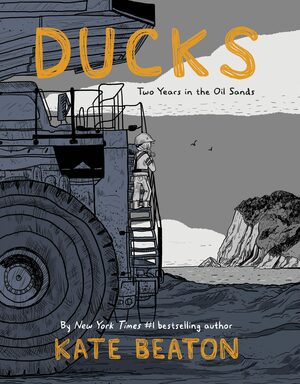Ducks is Kate Beaton’s graphic memoir about the two years she spent working in the oil sands of Alberta. Originally from Nova Scotia, she was unable to find work at home that would pay enough to pay off her student debts. So, like many others, she traveled to Fort McMurray to get a higher paying job.
She found herself in a hyper-masculine setting that was toxic, where she encountered routine sexual harassment and was raped twice in her first year. She does attempt to show the whole story, the loneliness of both herself and the men, the nice people she encounters, and so on.
Other themes in the book are the poisoning of the environment, the lip service to corporate safety, the harm to local people, especially the First Nations.
I thought this book was interesting. The cartoons are not beautiful, but they are good enough to tell characters apart and to recognize emotions. It certainly provided a window into another kind of life.
It struck me how often the most beautiful areas to live in are the ones where it’s most difficult to gain a living. I grew up in Michigan, which in my time was a have-not state, but not as bad as Eastern Canada, apparently.
Related Posts
The Ukrainian and Russian Notebooks


